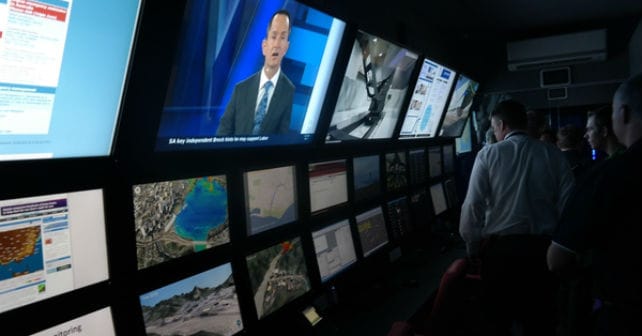In the US, green must be framed as 'red, white and blue'
 I still find the US a very perplexing place. I was over there in May, on the east coast, for the latest in a series of seminars run by The Prince of Wales’s Business and the Environment Programme.
I still find the US a very perplexing place. I was over there in May, on the east coast, for the latest in a series of seminars run by The Prince of Wales’s Business and the Environment Programme.
We had a fantastic bunch of business delegates: open-minded, deeply concerned about the state of the earth and climate change in particular, and all incredibly keen to see themselves and their companies as part of the solution rather than the cause of the problem.
For a lot of them, the highlight of the week was the sharing of a new film, Carbon Nation. This picks up from where An Inconvenient Truth leaves off, with 80% of the content focused on developments in energy efficiency and renewables in the US. It’s a smart piece of work, interviewing both the usual suspects (Amory Lovins, Lester Brown and so on) and treehuggers, with some “salt of the earth” entrepreneurs, farmers, community activists and even military types.
It was the first time I’d heard of the Pentagon’s Green Hawks. They’re driving a programme of energy efficiency through the US armed forces (particularly “in theatre” in Afghanistan and elsewhere) which makes most civilian enterprises look weak-kneed by comparison. Its success can largely be put down to its appeal to patriotic and nationalistic sentiments — summed up neatly by Thomas Friedman (author of the brilliant Hot, Flat and Crowded) with the soundbite, “Green is the new red, white and blue.”
This stuff works in the US. Friedman’s latest rallying call is that American environmentalists should give up on their “Earth Day” rhetoric and focus instead on the emerging “Earth Race” — the race between the US and China to become the dominant player in the burgeoning cleantech sector. This is a big deal: the cleantech market is worth around $150 billion a year at the moment, but will need to grow to a minimum of $500 billion a year if we are to meet today’s targets for reducing greenhouse gases.
Tough-talking army officers and aggressive entrepreneurs add a new dimension to the way all this sits with US citizens. But it’s still a tug of war. On the one hand, a Gallup poll in March showed that 46% of US citizens are now persuaded that climate change is caused by natural factors rather than man-made emissions. On the other, a big piece in Time Magazine a few months ago highlighted what it called the new “Responsibility Revolution” sweeping America, with 40% of US citizens claiming to put the environment at the heart of their purchasing decisions.
On one thing, however, everybody agreed: the US political system is broken. Any dreams of bi-partisanship have withered in the face of Republican intransigence; Capitol Hill is besieged as never before by lobbyists of every description; and that good old US “pork-barrel” is as prominently displayed at the heart of Congress as it’s ever been.
The likelihood of getting any climate treaty passed is close to zero. Indeed, the requirement to have a majority of two-thirds in the Senate means that there are already 45 international treaties stuck in the logjam waiting to be ratified. To that resonant election catchphrase “Yes We Can!,” have been added the words “but we probably won’t … !”
And so Barack Obama is increasingly dependent on going over the heads of such a chronically dysfunctional Congress. With the emphasis on energy security, new jobs, skills and innovation, he’s out with a nationwide crusade around the “Clean Energy Economy.” By all accounts, this has hardly been barnstorming Barack at his best, and hopes are fading that it could parallel JFK’s summons of the entire nation in support of efforts to get a man on the moon — before the Russians did!
It’s hard to go over the heads of Congress, directly to the people, if you can’t rely on the media’s help. And that just isn’t happening. When I’m in the US, I’m invariably over-taken by a bizarre compulsion to tune into Fox News, immersing myself masochistically in its melee of misinformation and madness.
What’s most scary about Fox News is that it gives no more standing or authority to science (as in the pursuit of evidence for or against any particular hypothesis) than to political opinion or “received wisdom.” Whether Fox News is simply reflecting a growing denialist trend, or actively fashioning it, the implications for policy-makers are grim. And it’s not just businesses that find this very perplexing indeed.
Editor’s note: This article was written by Jonathon Porritt, Founder-Director of Forum for the Future. This piece originally appeared in Green Futures, which is published by Forum for the Future and is the leading magazine on environmental solutions and sustainable futures. Its aim is to demonstrate that a sustainable future is both practical and desirable — and can be profitable, too. WWF-UK is a Forum for the Future partner. Jonathon’s blog is available as a podcast at: www.JonathonPorritt.com. Listen to Jonathon at: www.ipadio.com/phlog/JonathonPorritt.




